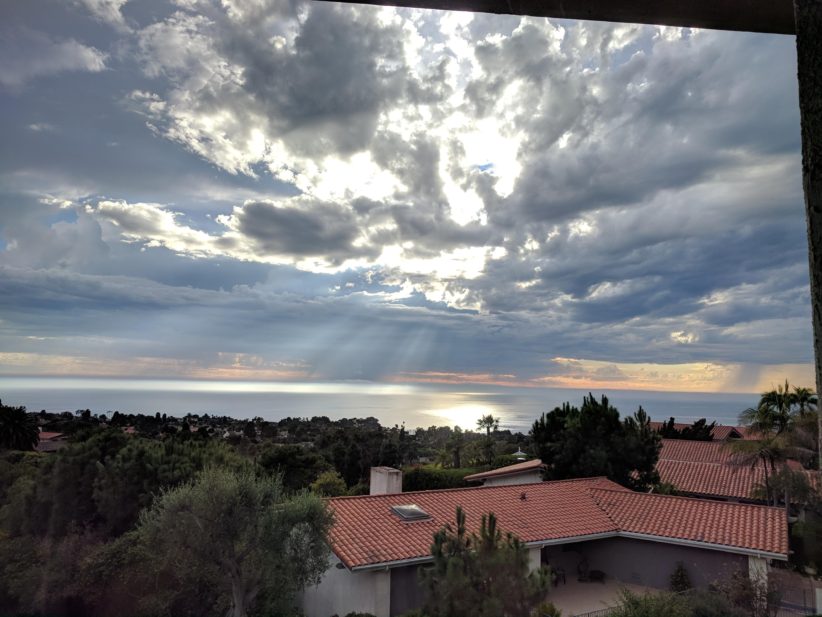I've spent a great deal of time thinking about what my encore career might look like.
Some of that thinking has to do with how to go about deciding on that first action.
Do you dip a toe in the water to an interesting idea?
Do you commit fully and completely to your best option?
How much is the right amount (time, money, opportunity cost) to put at stake?
Furthermore, do you let what you have in mind for your endpoint guide your approach, or do you simply go where curiosity leads you?
This is where I find it helpful to consider an analogy with the concept of applied vs. bench research.
Applied research is outcome driven research - the intent is to map out a path from starting point A to outcome B using the tools at hand to solve a specific problem. It sounds completely reasonable. It would seem a great model on which to base my planning for an encore career.
I create a checklist:
- Engagement using my strategic planning faculties
- Protected chunks of time for family travel
- Flexible scheduling so I can go cycling or bodyboarding in the morning, and work from home once my kids return from school
- Leveraging professional relationships I've built over the years
- Learning new skills and being a part of policy-level decision-making conversations
Then I use the tools I have to find a job that matches as many of these items as I can. The Venn diagram that overlaps the most must be the right option to pursue, no?
The problem is, unfortunately, that science doesn't always fit such tidy models.
Bench research, also known as basic science research, is more true to the way that scientific progress occurs. It's nonlinear, and it happens when someone who pays attention notices an irregularity that cannot be explained by existing models and says, "That's funny..."
Story Break
I took an upper level course in neuroscience my sophomore year of college, whose textbook contained a single page highlighting research that illustrated how a clever bench researcher had devised a way to reveal the overlapping maps of auditory and visual space in the brains of barn owls.
It got better. This researcher then proceeded to place prisms on the eyes of the owls, and measurably shifted one map relative to the other. Mind blown! This experiment held up in adult as well as adolescent owls, demolishing the myth that adult brains were incapable of plasticity.
I checked the footnote, and was delighted to learn that this researcher was tenured faculty at Stanford, and his lab was a hundred yards from where I went for my organic chemistry lectures!
I cold called this professor, asked to tour the lab, and that moment of curiosity led to a two and a half year commitment to learn what bench research was like.
It wasn't the life for me, but I admired his endless curiosity and the ability to formulate it into testable hypotheses.
At one point, as we grew closer, I asked him if he felt like he'd peaked too early - he had been inducted into the National Academy of Sciences and received tenure as a full professor by age 40!
He replied that the tenure and membership offered stability, but were rather beside the point as far as he was concerned. He had a lifetime of questions he hoped to ask, and tenure just meant he'd have less uncertainty in funding those investigations.
Back To Our Usual Programming
Bench research is curiosity-driven, and the applications often emerge after a new body of knowledge is developed and disseminated.
I find myself at an interesting crossroads, where I've thrown a few different things at the wall over the past several years and none of them have stuck so far.
In design terms, I've spent a few years brainstorming, iterating prototypes of encore careers, and failing forward when they did not pan out.
My latest attempt at curiosity-driven inquiry - Perhaps I can offer to scale for your organization an interesting project I've done on a smaller level for my group? - led to a phone call, led to a meeting, led to a series of panel interviews.
I now have an opportunity to exit clinical medicine. When I lose sleep thinking about what it could mean, it's the good kind of insomnia. The kind I recall having the night before I got married, where uncertainty, excitement and promise commingle in equal measure.
You know something interesting and positive will come of the commitment you are about to make, and you know that you can't possibly grasp the full measure of what that will mean.
This opportunity would not have been on my radar at all had I been limiting my original search exclusively to jobs containing those items on my checklist.
It's not that the current opportunity failed to meet those criteria - it's that I was not thinking boldly enough, and would not necessarily have regarded myself as qualified to meet the job description. I also would not have imagined that the job could be as flexible as I might need it to be.
It was a failure of my imagination.
Which is why I've come to be a fan of the curiosity-driven approach toward figuring out your next act. In my situation, it involved discerning the most interesting, engaging and energizing elements of what I currently do and trying to figure out how to spend more of my time doing that type of work.

